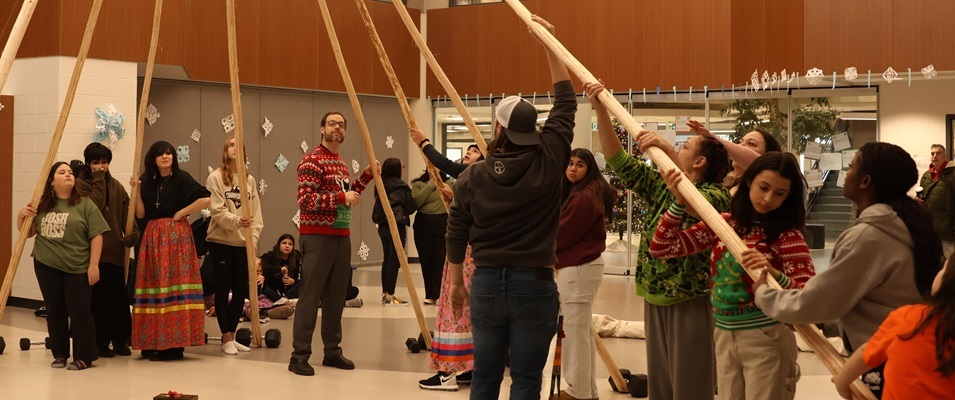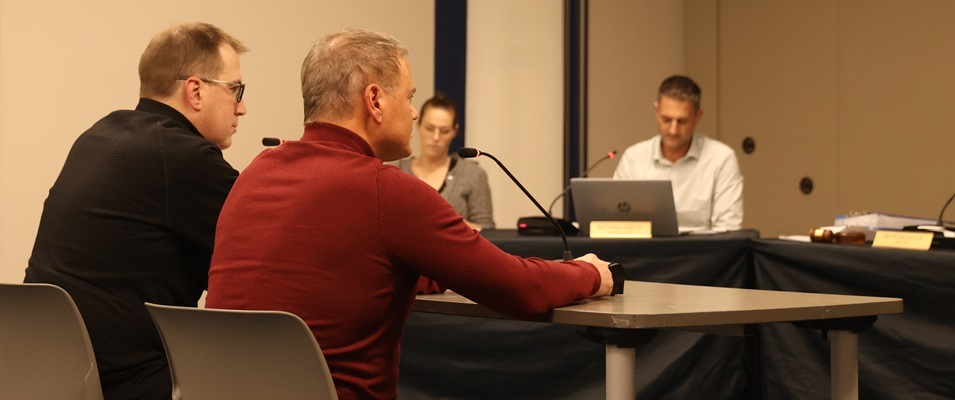
If Niverville’s social media groups were an information kiosk, the curator would by now have a tuckered-out response to all those who come to town looking for the expected public library.
Because there isn’t one. Indeed, those who pay close attention know that the question is raised so frequently that it could already have its own section in someone else’s public library.
As recently as September 12, the ubiquitous question was posed again: if much smaller communities like St. Adolphe and Île-des-Chênes can support public libraries, why not Niverville?
This time, the online question elicited well over 60 responses from locals, the majority in support of a public library or, at minimum, a subsidized rebate offered by the town which residents could then apply to the cost of library cards in neighbouring communities.
Manitoba’s Rural Libraries
In 2021, Manitoba had a total of 53 library systems located outside the city of Winnipeg. The majority provide free access to resources for residents only.
Libraries in larger centres, such as Winnipeg and Steinbach, provide non-resident membership options, but it comes with a cost.
For an annual fee of $95, non-residents can take advantage of all the resources and programming offered at Steinbach’s Jake Epp Public Library. According to the library’s website, the RM of Hanover offers its residents a $30 rebate off a library card there. The RM of Ste. Anne offers a $60 rebate to its residents.
An annual family membership to any of the Winnipeg libraries costs $161 per year for non-residents. The Winnipeg Public Library website recommends that non-residents check with their local municipality about rebates being offered.
So far, the Town of Niverville offers no library rebates to its residents.
In the RM of Ritchot, the communities of Ste. Agathe, St. Adolphe, and Île-des-Chênes (IDC) all run public libraries from their schools under the auspices of the Bibliotheque Ritchot Library. Each is open to the public for two to three days per week after regular school hours.
At this point, the Ritchot Library board does not offer memberships to non-residents. According to the board’s director, consideration of this nature is being made due to the sheer number of inquiries received from Niverville residents.
The IDC branch, located in the Ecole Gabrielle-Roy School, offers the widest selection of books, services, and programming of the three libraries.
Here, residents of Ritchot can loan DVDs and CDs. They can also acquire free access to an extensive array of resources through the online E-library and to the library’s computers and internet services.
As for books, if they don’t have what you’re looking for, library staff can special order it for you thanks to the inter-library loan services they offer.
The library’s space is also used for a variety of family activities, such as puppet shows and storytime readings for kids.
According to the Bibliotheque Ritchot Library director, more than 100 residents on average take advantage of the library services on a weekly basis in IDC alone.
Are Libraries Headed for Extinction?
If libraries have seen their hay day, the Manitoba government didn’t get the memo. In October 2021, the province allocated almost $770,000 in additional grants to rural libraries, over and above the annual library operating and start-up grants they provide to library boards year after year.
“Manitoba libraries are important community hubs and this new investment recognizes their work in encouraging lifelong literacy, providing reading and educational opportunities and supporting the arts,” said Sport, Culture and Heritage Minister Cathy Cox in a press release at the time of the announcement. “This new financial support will help ensure residents from all walks of life have access to information, services and the internet, allowing them to broaden their knowledge and expand their horizons through reading, research and community activities.”
Deb Lussier of Niverville is one of the many residents who longs for library space in the community.
“Public libraries are about so much more than borrowing books,” Lussier says. “They offer a community for families and individuals to learn together and develop a love for reading. They offer parents the ability to engage their children in a wholesome activity that will benefit them for years to come. They offer a space for individuals who may not have access to the internet or even basic education… Libraries [provide a place] to come together in a way that just isn’t possible in any other forum.”
With the high percentage of young families in town, Lussier believes that a public library would be well-utilized.
While some might argue that there are libraries available in every school and church, Lussier says they don’t provide a broad cross-section of resources for all ages, faiths, or interests. As well, these libraries are generally exclusive and provide limited hours of access.
As for using a rebate to visit a neighbouring community’s library, Lussier says she’d likely take advantage of that if it was the only option. In the end, though, she’d limit her use since gas prices and travel time make frequent trips out of town a financial burden for her family.
In 2018, writer Eric Klinenberg wrote an op-ed for The New York Times titled “To Restore Civil Society, Start with the Library.” Klinenberg is a sociologist and author who asks this question: with public culture moving online, is the public library obsolete?
“The problem that libraries face today isn’t irrelevance,” Klinenberg says. “Indeed, in New York and many other cities, library circulation, program attendance and average hours spent visiting are up. The real problem that libraries face is that so many people are using them, and for such a wide variety of purposes, that library systems and their employees are overwhelmed.”1
The belief that libraries no longer serve a valuable purpose in an era of technology, he adds, is partly because there are so few people of influence who fully comprehend the expansive role played by library spaces.
The role a library plays is perhaps more important than ever to the social infrastructure of a community.
“Libraries don’t just provide free access to books and other cultural materials,” Klinenberg writes. “They also offer things like companionship for older adults, de facto childcare for busy parents, language instruction for immigrants and welcoming public spaces for the poor, the homeless and young people.”
Libraries are places for culture and company, he continues. A place where all ages, genders, faiths, and interests intersect. Compare this to the social spaces of today’s coffee shops where products must be purchased to use the space and patrons aren’t always welcome to linger for hours at a time.
Why Niverville Still Has No Library
Many residents of Niverville would tell you that the town’s lack of a public library is not due to a lack of trying.
Long-time resident Ernie Braun belonged to a committee many years ago whose goal was to research how other communities were creating public library spaces and to look for a way to replicate the model in Niverville.
At the time, with a much smaller population and fewer public spaces available to them, the best option, as Braun recalls, was to try and facilitate the use of the already-existing library in the Niverville Collegiate.
“That didn’t pan out all that well because there was no direct access to the library from outside,” Braun says. “So the entire school would have to be open to the public every evening that the library was open, and that did not work with Hanover School Division, if I remember correctly.”
Lisa Letkeman was part of another committee that formed for the same purpose about 15 years ago, some years after Braun’s committee walked away from the initiative.
“We worked alongside a person from the Public Library Services office,” Letkeman says. “Town council said they would find space for a library if we could prove there was interest.”
The first step, she says, was to present council with a petition which had been signed by a specified number of Niverville residents. The committee collected those signatures easily within just a week or two.
The petition was left with the town’s former CAO in the hopes that council would move forward with the next steps of creating a bylaw and discussing a location.
Letkeman recalls some conversation which implied that space was currently available in the Niverville Heritage Centre. But before the library initiative ever got off the ground, the space was given to the daycare instead.
With that, the committee disbanded and moved on to other things.
“Interestingly, years later I got a phone call from someone from the Public Library office encouraging me to fight for a library again,” Letkeman says. “She suggested we ask the Steinbach library to take us under their wings. Their board would manage our library and they would help cover the cost of accounting, etc. I thought her ideas were brilliant but was not in a place where I could take on the responsibility.”
Offering rebates for use at other library locations, she adds, completely nullifies the importance of the role of the shared community space that Niverville residents deserve.
In addition, a library has much relevance to the historical aspects of a community.
“An important role a library can play in our community is to be the keeper of records and history for Niverville,” Letkeman says. “Whether it’s statistics, official records, or the many books written by residents, past and present, we need a place to house the story of our community.”
The Mayor Responds
Mayor Myron Dyck says that council sees the creation of a standalone public library as similar to that of a public pool. It’s a facility that has the potential to create an extra tax burden for residents since, statistically, pools and libraries operate at a higher cost than the revenues they are able to generate.
As for incorporating it into the building plan when the CRRC was being developed, Dyck says grant limitations influenced council’s decisions at that time.
“The whole issue of being a multicultural centre was a key note in [the grant] application and how the centre would be seen to support all cultures of people,” Dyck says. “Immigration was another key point in the application. Thus, the museum was put in to show how Niverville is multicultural. The teaching kitchen was put in to show that we would be using it to help immigrants to Canada assimilate to Canadian culture by teaching them Canadian food options and preparation of foods grown in the area. The multipurpose rooms were put in and the application we presented stated we would be using them to teach English as a second language. Without these amenities, money would not have come.”
In terms of other community-owned spaces, Dyck sees few alternatives for a library to be created. The south end of the old arena is currently in use by the preschool. The Niverville Heritage Centre is at capacity and the space that is currently unoccupied at the town office is being reserved for the expansion of community safety services.
Even so, Mayor Dyck encourages individuals or groups to do a little research into the budgets of other public libraries if they hope to get something started here.
Hanover School Division
The Citizen reached out to the Hanover School Division (HSD) for comment on collaborating with the town for public library space in one of the local schools. Hélène Connelly, executive secretary of the HSD, says that they haven’t received any inquiries of this nature recently, but they’d be open to dialogue on the topic.
The division’s Community Use of Schools policy states: “Hanover School Division believes that it is important to promote and support the development of partnership agreements between community members, local municipalities and recreation commissions for the use of school and community facilities to enhance the educational, recreational, social and cultural learning experiences of all Hanover students and community members.”
How to Start a Library in Your Community
The Public Library Services Branch (PLSB) is a government-run organization operating under Manitoba Sport, Culture and Heritage.
“Our goals are designed to foster and strengthen the network of community-based public library services in Manitoba,” the website states.2
The PLSB provides complete consultation and support from the start-up phase right through to organization and governance. A community library board must be established from the onset.
Further support is also provided by way of grant funding for rural communities. The first is the Rural Library Establishment grant to assist in getting a community’s first public library off the ground.
A prerequisite to receiving this grant is that the municipality must also contribute a sum of $3.75 per capita.
Annual operating grants and technology upgrade grants are also available. It is expected that a portion of the operating grant will also be cost-shared by the municipality.
Federal grants, too, are available to libraries through the Canada Council of Archives.




















